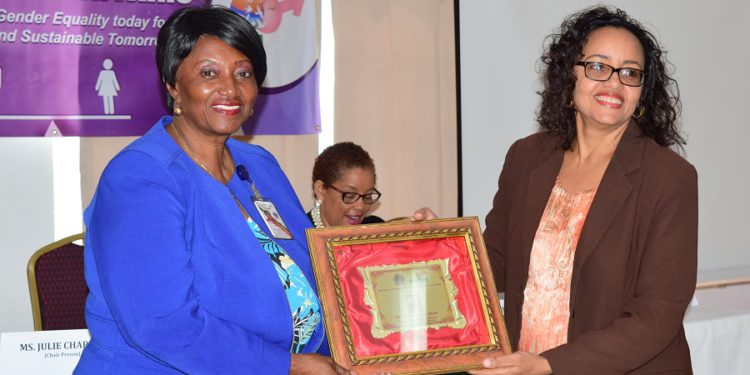The Complaint and Response Protocol, funded by UN Women and the Pan American Health Organization (PAHO), is designed to document key organizations in the Federation that provide services to survivors and complainants of domestic and sexual violence.
The policy educates key stakeholders in the healthcare, education, childcare, social support, legal and criminal justice system sectors and provides guidelines for training on the appropriate procedures to follow when a crime of this nature materializes.
It addresses first response procedures, best practices for law enforcement, emergency and medical services, social services, victim advocacy and legal action.
Minister of State with responsibility for Gender Affairs, the Honourable Wendy Phipps expressed her full support for the launch of the policy and said that it will help to strengthen the legislative framework surrounding sexual and domestic violence crimes.
“We are hoping by this protocol it will then open the doors for more conversations on parenting, and community support systems that should be in place,” said Minister Phipps while adding that “at the same time [it would] give us the wherewithal as state agencies to strengthen what we already have in place to make sure that there is unity and collaboration in getting us the kind of St. Kitts and Nevis where we can strongly say that we have a social system and infrastructure that support individuals when acts of violence take place.”
She said that there will be ongoing sensitization campaigns to remind persons to reinforce the procedures in the protocol, as it is important to handle these type of delicate situations appropriately.
Director of the Department of Gender Affairs, Celia Christopher said that, in 2017, the country recorded 353 cases of domestic violence. She also noted that the policy will be very important because it provides information that is helpful to the department with respect to developing programmes for victims.
“The Department of Gender Affairs, whose mission it is to ensure that women and men, boys and girls share equally in the development of the country, has committed itself to undertaking several programmes that are designed to promote gender equality,” she said.
She then quoted internationally-known domestic abuse survivor, Tracy Malone, who said, “Domestic and sexual violence does not discriminate. Anyone of any race, age, sexual orientation, religion or gender can be a victim or perpetrator of domestic and sexual violence. It affects people of all socioeconomic backgrounds and educational levels.”









